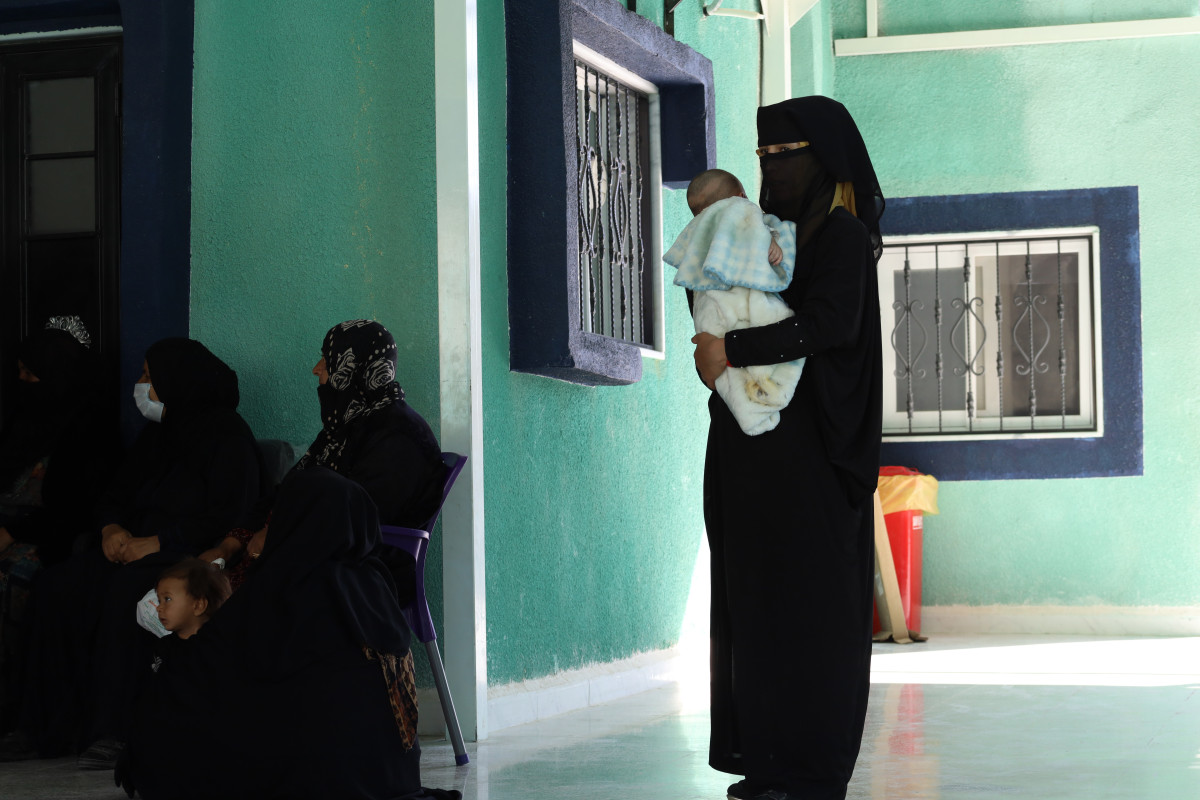No more hitchhiking required: PIN brings health care back into walking distance for thousands of Syrians
Published: Oct 6, 2021 Reading time: 5 minutes Share: Share an article"One of my children was sick and we had to take him at night to the nearest city,” said Aya*, 33, from a rural town in northern Syria. “We had to search through the night for any car that would take us. When we arrived, we couldn’t find any doctor. It was a terrifying experience.”

Far too many people in northern Syria have shared a similar experience to Aya. Her nearest public health centre is nearly 60km away, along a crumbling road. Public transportation is non-nonexistent in this rural area, thus families either have to hitch rides for the two-hour-long journey to the public health centre or go to one of the nearby private clinics. The price for the later makes them an unrealistic option for most families.
“Now, since the opening of this health centre, we don’t have any concerns about this issue,” Aya said.
Today, a newly rehabilitated health centre stands in Aya’s village. The centre is big enough to serve the 50,000 people living in 120 surrounding villages. In September 2021 during its first week of opening, the centre was already seeing an average of 40 women and 50 children each day.
“The building was out of service since 2012,” said Ali*, 32-year-old team leader at the centre. “Today, it is rehabilitated by People in Need (PIN) and it is in the best shape. We have three clinics: one for women, children and internal diseases.” The maternity ward in the clinic is the most impactful, as pregnant woman and mothers are the primary patients the clinic sees. Ali tells us that too often, women would give birth on the side of the road on the way to the hospital. Now, they have a safe place to be cared for during all stages of pregnancy.
“We have a fully equipped ambulance and trained medical team,” said Ali, “They can help in the hard cases to provide basic health services and take care of the patient until they reach the nearest hospital.” The health centre also offers medicine at reduced prices for patients.
PIN worked closely with the village’s Municipality and Health Committee to ensure the largest needs would be met by this project. A local contractor led the rehabilitation work, employing almost 60 people from the community itself as well as neighboring areas impacted by the centre.
“Today, all the engineers and doctors are leaving because there is no work for them,” said Mustafa, 42, a previous member of the village’s local council. “They travel and work in other countries when their community needs them.”
Mustafa explained how his area was traditionally farmland, and the communities there used to export food to sustain themselves before the war. Now, they import all their food because of lack of investment in the agriculture sector and the economy in general, which also impacts sustainable job opportunities. “People should have decent opportunities so they stay here to contribute to the rebuilding of our country. What we need is for our people to come back here and rebuild the area,” he said.
The needs of the people in this area are high, with many mothers waiting to be seen by a doctor expressing to PIN that they don’t have enough money to buy food to feed their children or even purchase the medicine they are prescribed, despite the reduced prices.
Rana, the centre’s cleaner and gardener, echoed this sentiment. She said the situation in the area is bad, “due to the war. A lot of youth have either emigrated or died.” Her husband was one of them. He was killed five years ago and left her alone with five daughters and three sons – the oldest only 16 years old.
“In the past, I didn’t have the money to buy even bread,” she said. “I waited for relatives to buy food for us or on any kind of assistance.”
Now, Rana is one among 40 staff members and the health centre. “I am so excited and full of energy,” she said of her work. “I can’t wait until the end of the month so I can take my salary, buy goods for my family and pay some of my debts.” Because of their economic situation, she was never able to send her children to school. With this new income, Rana dreams of getting her children educated so they can find their own stability later in life.
“We can’t dream bigger than this because we have just come out from a catastrophe,” she says. “All of our dreams are small and it is to keep a life without any war or troubles and find our basic needs.”
Ten years of conflict has left Syria’s economy in ruins, hitting the health system hard. Whether it be structural damage to buildings or just access to basic medicines, families who are surviving to put food on the table sometimes must forgo their health needs.
The rehabilitation of this health centre changes this equation: In the words of Mustafa, “(the centre is) a great achievement, because it provides the people here with at least one of their basic rights – the right to health care.”
Thank you to USAID for making this project possible with their generous support.
*Names changed to ensure protection



